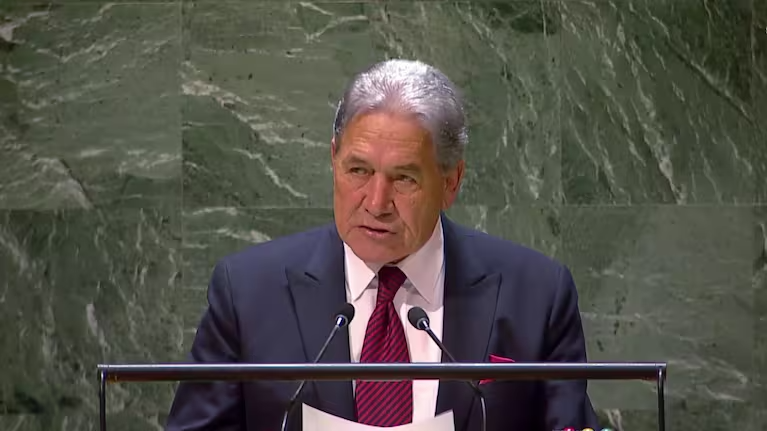Australia/Israel Review
AIR New Zealand: Grading NZ’s new government
Apr 26, 2024 | Miriam Bell

New Zealand went to the polls on October 14, just one week after the Hamas terror attacks on Israel. While the centre-right block of the National, ACT and New Zealand First parties won the election, it took another six weeks to finalise the agreements needed to form a coalition government led by new National Party PM Chris Luxon.
Over that period, the country operated in a vacuum, and little was said by either the outgoing caretaker government or the new government-in-waiting on either events in Israel or the escalation of antisemitism in New Zealand.
But six months on from the election, the coalition Government has had time to settle in, so it seems timely to ask Jewish community leaders about the new leadership’s relationship with the community.
NZ Jewish Council President Juliet Moses said the new Government’s response on the Gaza war has been somewhat inconsistent. It has said different things about a ceasefire in different forums around the same time, varying in part based on who was speaking.
Regarding the actions of new Foreign Minister, Winston Peters, she said, “It could be better, could be worse. His recent speech at the United Nations was disappointing in its lack of pressure on Hamas, except for a passing mention of releasing the hostages, or acknowledgement of Iran’s role.”
There has been minimal formal contact between the new Government and the community, which is disappointing, Moses said.
“It likely would have been worse under the previous government, although to be fair we did have a meeting from a senior member of the Opposition who was concerned about the community.”
On an individual basis, some ministers have stood up for the community, she added. “Simon Court of the ACT party has been a standout in terms of his commitment, outspoken support and knowledge.” She also mentioned David Seymour and Brooke Van Velden, also of ACT, and National’s Chris Bishop as other consistent supporters.
Moses said the community would like to see engagement and support from the Government and other politicians about rising antisemitism and security concerns.
“The fact that Jewish schoolchildren are being hounded out of schools and Jews are being hounded out of public life should worry them and prompt action. Right now, we experience apparent apathy and, in some cases, outright hostility.”
Rob Berg, the former president of the Zionist Federation of NZ, said only a few people in the Government have connections to the Jewish community, but his first impressions are that the new Government is more open to dialogue than the previous government.
Initially its reaction to the war in Gaza was very encouraging, but of late it seems to be more focused on the narrative that Hamas is providing, he added.
“It seems to be taking that as given, despite knowing the Hamas numbers and narrative are not to be trusted. It is also disappointing that New Zealand seems to just follow the crowd at the UN when it comes to Israel.”
Berg also described Winston Peters’ performance as “pareve” [a Yiddish term meaning, roughly, “neutral”], saying, “He’s made some statements in support of Israel, but shies away from outright condemnation of Hamas and attributing the current situation to them. It would be nice to see him condemn Hamas and acknowledge the war could be stopped if the hostages were released and they surrendered.”
Holocaust Centre of NZ chair Deborah Hart said the centre has good relationships with members of the Government, and some ACT and National Party MPs have attended its events.
“But there are searingly deep issues that we are dealing with, especially around antisemitism in schools, and we would welcome the opportunity to talk with the Government about these issues.”
A survey of Jewish parents conducted by the centre late last year revealed high levels of antisemitism in schools, with 50% of respondents saying their children had been subjected to antisemitism at school since October 7.
Under the previous government, the centre received funding to work on a toolkit to prevent violent extremism in schools, Hart said.
“The toolkit will be ready by the end of the year and will need to be distributed to schools. That will be a huge task, and we are hoping the Government will extend that funding.”
The centre – like all Jewish institutions – is also concerned about security, and it looks to the Government to provide protection for it and its events, she said.
“Police data shows there has been a 583% rise in hate crimes against Jewish people in New Zealand, and they are five times more likely than the next group to suffer a hate crime. So the security concerns the community has are real.”
Also, the centre would like to see the new Government advance New Zealand’s relationship with the International Holocaust Remembrance Alliance from observer to full member, Hart added.
Tags: Antisemitism, Gaza, Israel, New Zealand






